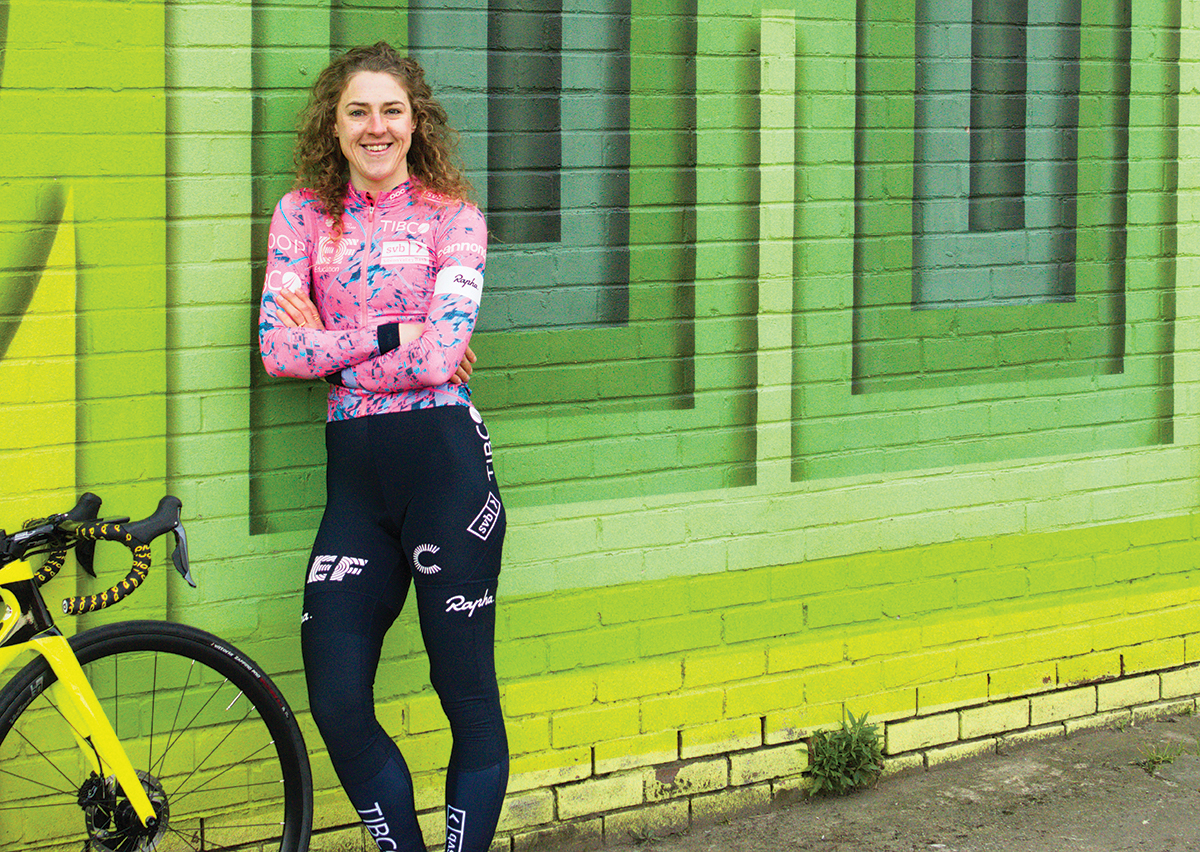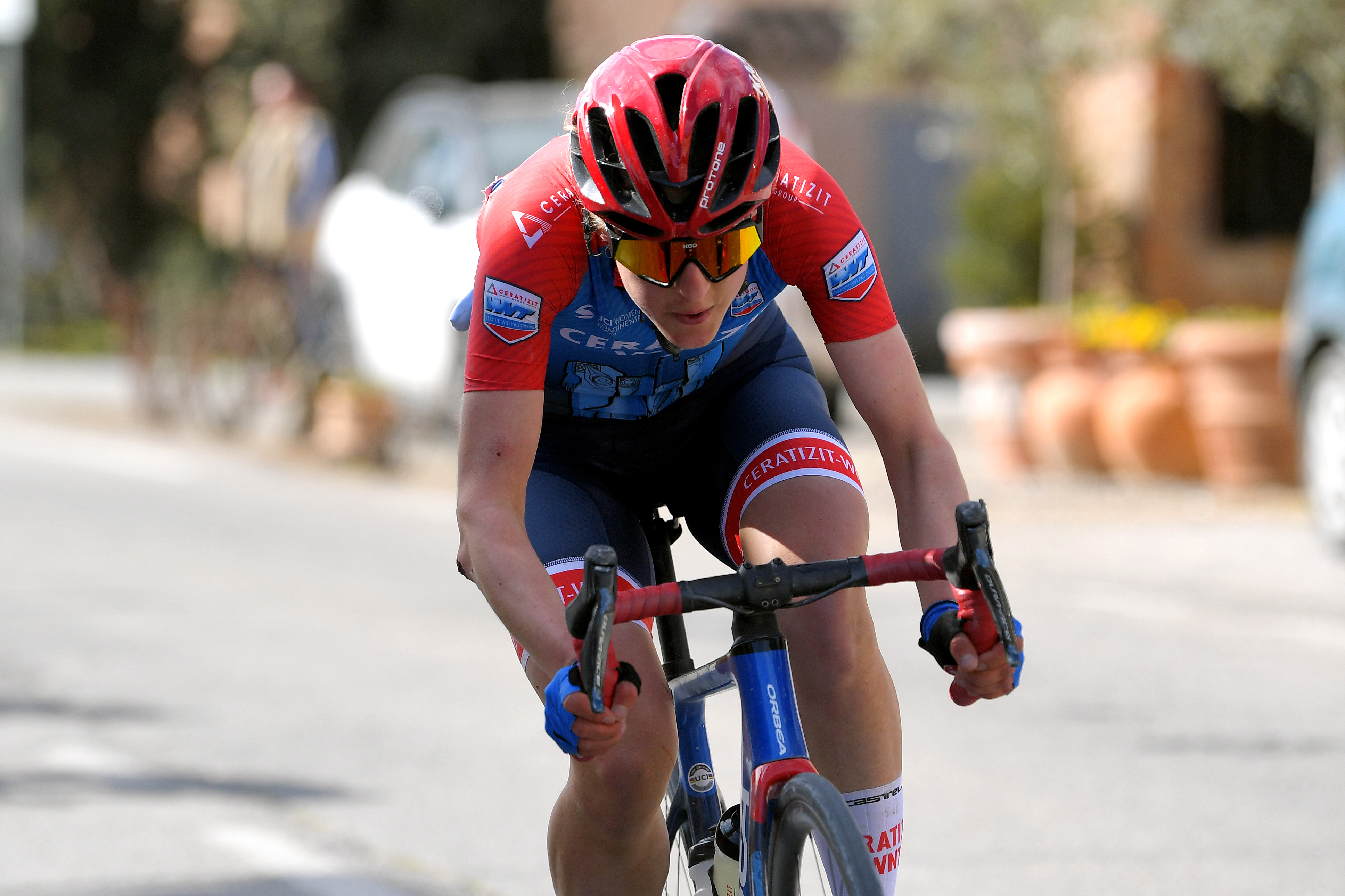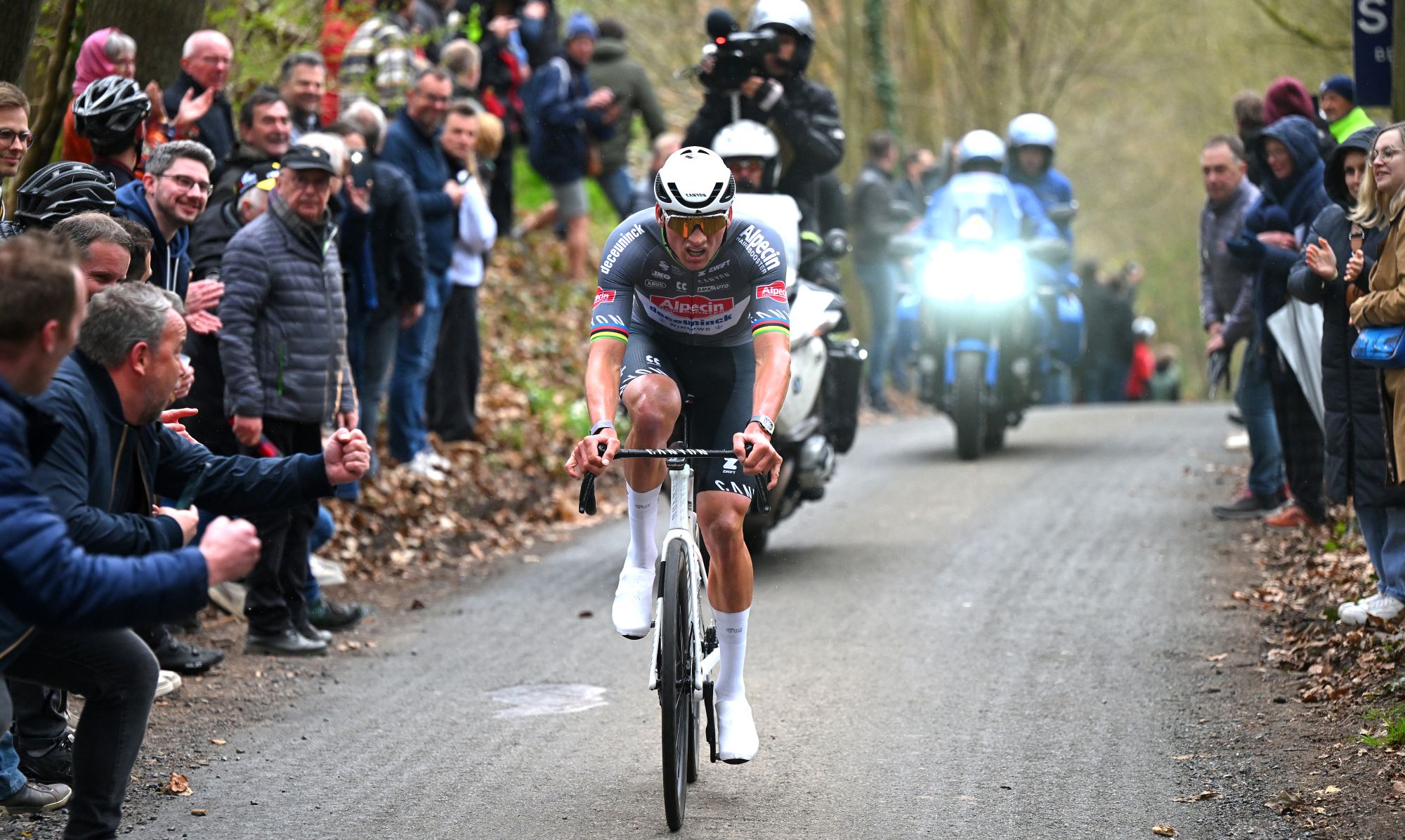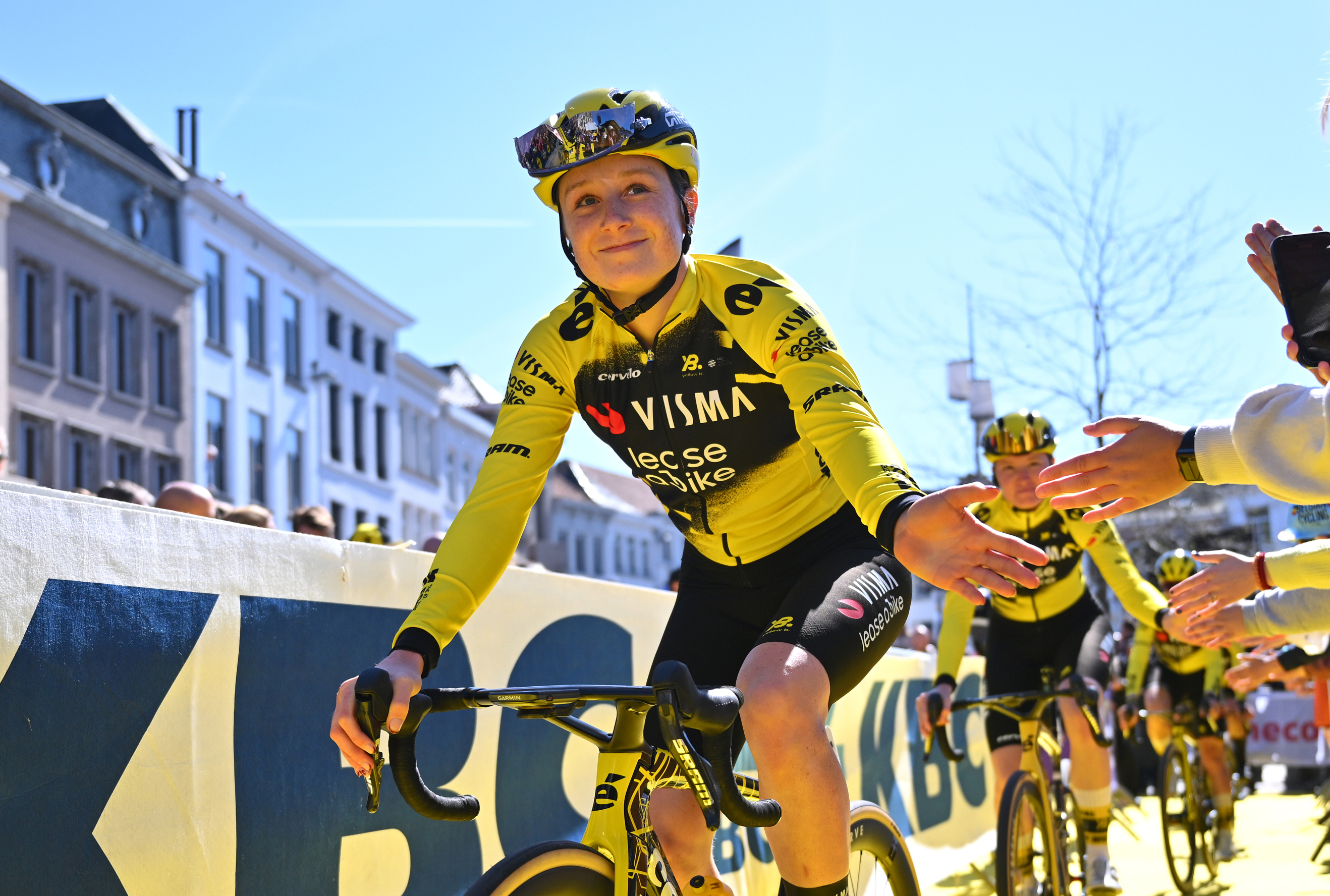Coming back from concussion: Lizzy Banks on a season lost to injury
Hitting the ground in a race and jumping back on the bike is normal for most pros, but Lizzy Banks's tale highlights how easy it can be to miss a crucial window for a diagnosis

Lizzy Banks already had a lot of catching up to do. The 31-year-old started racing in her mid-twenties while just nine months shy of completing a seven-year medical degree. Despite her late start she hit the ground running, winning the British National Series overall in 2017 and duly signing a pro contract with the now-defunct American team United Healthcare the following season.
After racking up a series of consistent results throughout the US and Europe. Banks went on to sign for the European-based Bigla team during which time she managed to take two Giro Rosa stage wins including the much talked about 170km day of the 2020 race. Her trajectory was still pointing skyward when, at the end of 2020, the team folded and she and the rest of her teammates were left searching for rides.
>>>>Subscribe to Cycling Weekly for more pro interviews every week
Luckily, Banks managed to find a place on the Continental squad Ceratizit-WNT for 2021 and a promising season lay ahead of the British rider. Then, just 30km into her second race of the season, Strade Bianche, she was taken down in a crash that would go on to define the rest of her year.
“I hit the ground and I knew it was bad but by the time your bike has arrived, two minutes later you forget that you were seeing stars,” Banks recalls. With 100km still to go she changed bikes and finished the race.
“By the time I got back to the bus, you haven’t forgotten you’ve crashed but you're tending to the wounds that are bleeding on your hips and your elbow, it was only when I was leaving that I remembered ‘oh, I hit my head, maybe you should check my helmet.’ And they said ‘yeah, we'll check it when we get back.’”

A few days later she received a call from Ceratizit-WNT director Carmen Small who was not at the race. Small had seen Banks’s helmet and wanted to make sure she wasn’t concussed. Banks, who thought she was fine, told her director that she was okay.
Get The Leadout Newsletter
The latest race content, interviews, features, reviews and expert buying guides, direct to your inbox!
“In hindsight, I was not okay,” she says. “The day that I travelled home I couldn't read the departure board at the train station. It was so bright and the numbers were so blurry. But I was tired. And you aren't thinking straight. There are reasons why it makes sense that these things aren't quite right. And I'd had a horrendous journey, and I couldn't get any food. And I was exhausted. And the race had been ridiculously hard and I’d crashed, and I was tired.”
It was only upon arriving back at her home in Sheffield that Banks realised that the issue was more than post-race fatigue. “When I got home, I was bumping into things, dropping things, and obviously in your own house that’s not really normal,” she recalls. She tried to continue her usual routine and even went training but riding her bike “just felt so weird, I felt like I was swimming”.
“So I got home, I took myself off the bike and I got in contact with the British Cycling doctor and I guess that's when the whole kind of ‘oh, okay sh*t I’ve got a concussion’ process started. Which is too late.”
Once she understood the severity of her injury, Banks realised that she had missed a crucial window in the immediate aftermath of the crash, “Starting with racing the last last 100km of the race I did everything I could possibly do wrong,” she says.
To read the full interview pick up a copy of the April 28 edition of Cycling Weekly. The Magazine is available to buy in store and order online. You can also subscribe to CW, save on the cover price and get the magazine delivered to your door each week.

Thank you for reading 20 articles this month* Join now for unlimited access
Enjoy your first month for just £1 / $1 / €1
*Read 5 free articles per month without a subscription

Join now for unlimited access
Try first month for just £1 / $1 / €1
-
 'I start every race to win' - Mathieu van der Poel fired up ahead of Paris-Roubaix showdown with Tadej Pogačar
'I start every race to win' - Mathieu van der Poel fired up ahead of Paris-Roubaix showdown with Tadej PogačarTwo-time winner says he has suffered with illness during spring Classics campaign
By Tom Thewlis Published
-
 'It's really surreal that now I'm part of it' - 19-year-old Imogen Wolff set to go from spectator to racer at Paris-Roubaix
'It's really surreal that now I'm part of it' - 19-year-old Imogen Wolff set to go from spectator to racer at Paris-RoubaixBrit first came to see the 'Hell of the North' when she was six
By Tom Davidson Published